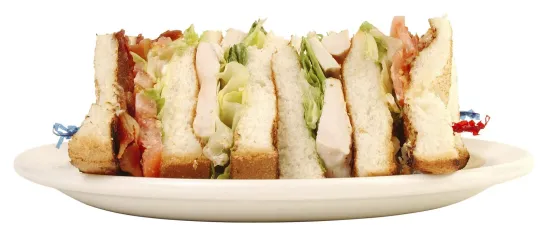In another example of a federal circuit court taking the National Labor Relations Board (NLRB) to task for stretching federal labor law past the point of recognition, the Eight Circuit Court of Appeals recently refused to enforce a NLRB order reinstating several former employees. The former employees were discharged after they posted flyers around town insinuating their employer was selling unsafe, germ-laden sandwiches as part of a campaign to enhance their sick leave. MikLin Enterprises, Inc. v. NLRB, No. 14-3099 (July 3, 2017).
In its decision, the Eight Circuit upbraided the NLRB for abandoning and ignoring the Supreme Court of the United States’ precedent regarding when an employee can be disciplined for “disloyalty” in the midst of a union organizing drive. The Eighth Circuit took particular issue with the NLRB’s interpretation of the seminal Supreme Court case NLRB v. Local Union No. 1229, IBEW (Jefferson Standard) and found that the NLRB’s reasoning effectively overruled Jefferson Standard.
Background
MikLin is a family business that owns and operates 10 Jimmy John’s sandwich shop franchises in the Minneapolis-St.Paul area. In 2007, several MikLin workers began an organizing campaign seeking representation by the Industrial Workers of the World (IWW) union.
In an attempt to garner more support for a rerun election, union supporters began a sick leave campaign in early 2011. They posted a flyer on community bulletin boards in MikLin stores with two identical images of a Jimmy John’s sandwich. Above the first image were the words, “YOUR SANDWICH MADE BY A HEALTHY JIMMY JOHN’S WORKER.” The text above the second image said, “YOUR SANDWICH MADE BY A SICK JIMMY JOHN’S WORKER.” Below the pictures, the white text asked: “CAN’T TELL THE DIFFERENCE?” The response, in red and slightly smaller, said: “THAT’S TOO BAD BECAUSE JIMMY JOHN’S WORKERS DON’T GET PAID SICK DAYS. SHOOT, WE CAN’T EVEN CALL IN SICK.” Below, in slightly smaller white text, was the warning, “WE HOPE YOUR IMMUNE SYSTEM IS READY BECAUSE YOU’RE ABOUT TO TAKE THE SANDWICH TEST.” The text at the bottom of the poster asked readers to help the workers win paid sick days by going to their website.
The day before the IWW could request a rerun election, its supporters distributed a press release, letter, and the sandwich poster to more than 100 media contacts. The press release highlighted discussed the employees’ need for sick leave and ended with a threat: If MikLin would not talk with the IWW about their demands for paid sick leave, they would proceed with “dramatic action” by “plastering the city with thousands of Sick Day posters.”
Days later, IWW supporters implemented their threat to plaster the city with posters. However, in the new version of the poster, rather than asking for support of the employees’ request for paid sick leave, the public posters listed the MikLin CEO’s personal telephone number and instructed customers to call him to “LET HIM KNOW YOU WANT HEALTHY WORKERS MAKING YOUR SANDWICH!” Two days later, MikLin fired six employees who coordinated the attack and issued written warnings to three others who assisted in it.
The NLRB Proceedings
The Board’s administrative law judge (ALJ) determined that MikLin violated the National Labor Relations Act by discharging the employees. Citing prior Board decisions, the ALJ ruled that the NLRA “protects employee communications to the public that are part of and related to an ongoing labor dispute” unless they are “so disloyal, reckless, or maliciously untrue as to lose the Act’s protections.” The ALJ found that to lose the act’s protections “an employee’s public criticism . . . must evidence ‘a malicious motive’ or be made with knowledge of the statements’ falsity or with reckless disregard for their truth or falsity.”
The ALJ found that the posters in question were not maliciously untrue. “While ‘it is not literally true that employees could not call in sick,’ the ALJ observed, employees ‘are subject to discipline if they call in sick without finding a replacement,’” and thus—according to the ALJ—the assertion that employees were required to work when sick was protected hyperbole. Though MikLin had a strong track record with the health department, the ALJ found that “it is at least arguable that [MikLin’s] sick leave policy subjects the public to an increased risk of food borne disease.”
A divided panel of the Board affirmed the ALJ’s findings and conclusions. The majority found “that neither the posters nor the press release were shown to be so disloyal, reckless, or maliciously untrue as to lose the Act’s protection.” The public communications “were clearly related to the ongoing labor dispute concerning the employees’ desire for paid sick leave. . . . Indeed, any person viewing the posters and press release would reasonably understand that the motive for the communications was to garner support for the campaign to improve the employees’ terms and conditions of employment by obtaining paid sick leave rather than to disparage [MikLin] or its product.”
MikLin appealed the Board’s order reinstating the employees to the Eighth Circuit Court of Appeals. On appeal, a three-judge panel upheld the NLRB’s ruling, but upon rehearing en banc by the full court, the ruling was overturned.
The Eighth Circuit’s Analysis
In its full court hearing, the Eighth Circuit took the NLRB to task for significantly misreading the Supreme Court’s decision in Jefferson Standard. First, the majority focused on the Board’s interpretation that no act of employee disparagement is unprotected disloyalty unless it is “maliciously motivated to harm the employer.” They found this additional requirement impermissibly overruled Jefferson Standard.
Second the court balked at the Board’s definition of “malicious motive.” The Board excluded from Jefferson Standard’s interpretation of Section 10(c) of the NLRA all employee disparagement that is part of or directly related to an ongoing labor dispute as improper. In other words, the Board refused to treat as “disloyal” any public communication intended to advance employees’ aims in a labor dispute, regardless of the manner in which, and the extent to which, it harms the employer.
The court rejected that idea:
By requiring an employer to show that employees had a subjective intent to harm, and burdening that requirement with an overly restrictive need to show “malicious motive,” the Board has effectively removed from the Jefferson Standard inquiry the central Section 10(c) issue as defined by the Supreme Court -- whether the means used reflect indefensible employee disloyalty. This is an error of law.
Rather than employee motive, the Eighth Circuit explained that critical question in the Jefferson Standard disloyalty inquiry is whether the employees’ public communications reasonably targeted the employer’s labor practices or indefensibly disparaged the quality of the employer’s products or services. The Eight Circuit found that when employees convince customers not to patronize an employer because its labor practices are unfair, subsequent settlement of the labor dispute brings the customers back—to the benefit of both employer and employee. By contrast, the court found, sharply disparaging the employer’s products or services as unsafe, unhealthy, or of shoddy quality causes harm that outlasts the labor dispute to the detriment of employees, as well as the employer.
Key Takeaways
While the Eighth Circuit’s decision is heartening, its effect will be limited for the time being as the NLRB is under no obligation to recognize the court’s interpretation of federal labor law. Further, the decision highlights the cost of fighting incorrect NLRB decisions for employers; MikLin had to appeal the ALJ’s decision to the NLRB, then appeal that decision to the Eighth Circuit, and then request a rehearing after the three-judge panel wrongly decided the appeal. Many employers simply do not have the resources to see a fight like this through to the end.
With President Trump’s selections to the NLRB being vetted by Congress this week, we can hope for a light at the end of this long, dark tunnel for employers.




 />i
/>i
